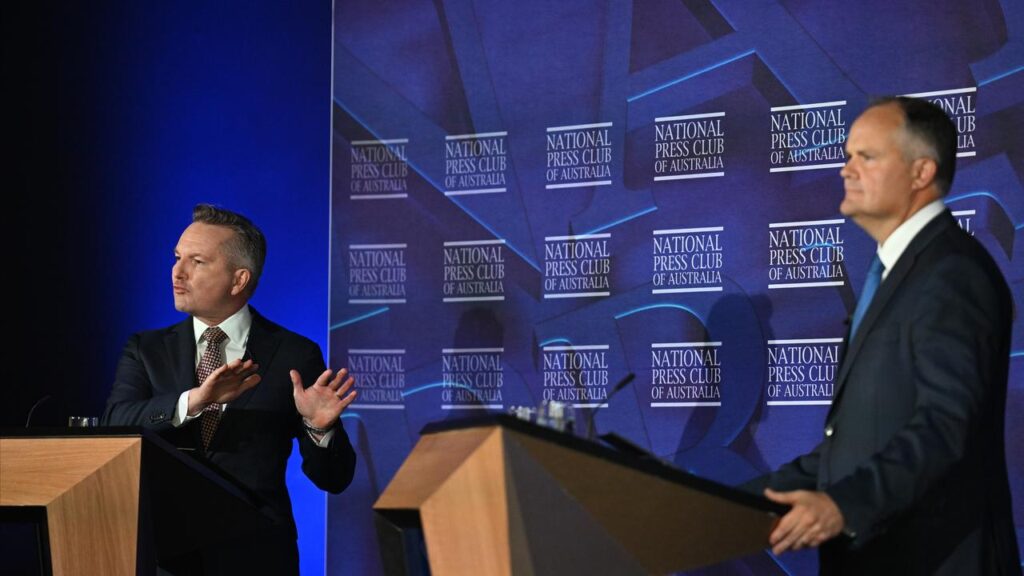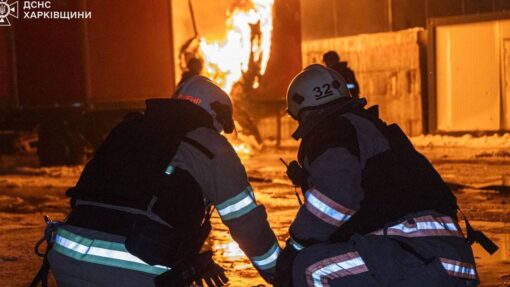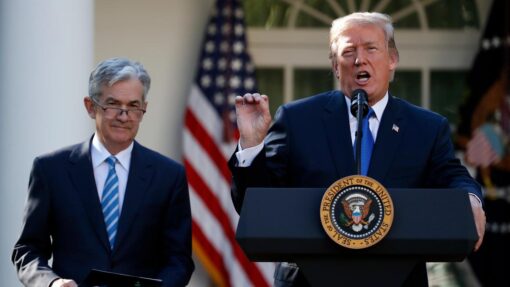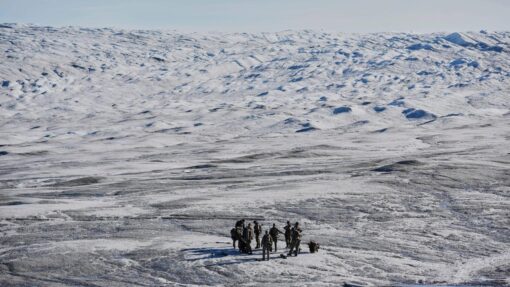‘Fork in the road’: parties at odds over energy plans
Jacob Shteyman |

The coalition will power ahead with its nuclear energy plan even if it loses the upcoming federal election, pushing the opening date for any nuclear plants into the 2040s.
Nuclear power and gas policies took centre stage as Energy Minister Chris Bowen and coalition counterpart Ted O’Brien squared off at the National Press Club in a debate dominated by plenty of hot air and a meltdown over costings.
The election would be a “fork in the road” for voters on energy and climate, Mr Bowen said.
Energy is one of the policy areas with the biggest divergence between the major parties.

Labor had put “all its eggs into the renewables basket”, according to Mr O’Brien, while Mr Bowen said the coalition would risk progress on decarbonising the economy by betting on nuclear, “the most expensive form of energy”.
Mr O’Brien said his party would refuse to resile from its nuclear ambitions, even if they were rejected by voters on May 3.
“We are looking at pouring more gas in the short term and introducing nuclear in the near term, not because we’re driven by polls, but because, hand on heart, that’s in our national interest,” he said on Thursday.
If the coalition fails to win the election, that would set back its next chance of forming government until 2028, further delaying its nuclear start date target and undermining the plan’s feasibility.
The coalition has claimed small modular reactors built under its plan would begin generating electricity in 2035, while larger modern plants would start up in 2037.

Even these figures are contested by experts.
The coalition plans to dump Labor’s climate target of reducing emissions by 43 per cent on 2005 levels by 2030, but Mr O’Brien evaded questions on whether that meant Australia would walk out on the Paris climate accord if elected.
“I can commit that we will always act in the national interest and we will be up-front with the Australian people,” he said.
Mr O’Brien’s refusal to commit to the Paris Agreement risked making Australia an “international pariah” and irreparably damaging relationships in the Pacific, said Thom Woodroofe, senior international fellow at the Smart Energy Council.
Following the debate, opposition finance spokeswoman Jane Hume told ABC News that the coalition was committed to the Paris accord, but Labor’s 43 per cent emissions reduction target was an “absolute fantasy”.
Mr O’Brien was also pressed on the coalition’s latest energy plan to pump more gas into the east coast market.
Modelling released by the coalition on Wednesday promised a 15 per cent reduction in gas bills for industrial customers, with smaller gas and electricity reductions for households.

But the gas lobby says the plan leaves many unanswered questions.
Infrastructure is lacking to store and transport the extra gas from Queensland to where it is needed in Victoria, while the impact of dumping more gas into the market on other producers was also unclear, said Australian Energy Producers chief executive Samantha McCulloch.
“I looked in detail at the modelling that was released yesterday, and it’s still not clear from that modelling how we’re arriving at these promised price reductions in electricity and gas bills for households,” Ms McCulloch told Sky News.
AAP


